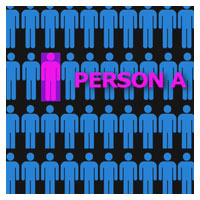Tag Archives: Research
Pressure for positive results puts science under threat, study shows
Scientific research may be in decline across the globe because of growing pressures to report only positive results, new analysis suggests.
A study by the University of Edinburgh examined more than 4,600 scientific research papers published between 1990 and 2007 and found a steady decline in studies in which the findings contradicted scientific hypotheses.
Papers reporting null or negative findings are in principle as useful as positive ones, but they attract fewer readers and citations, so scientific journals tend to reject them.
It is acknowledged among scientists that this problem might be worsening, because competition in science is growing and jobs and grants are given to scientists who publish frequently in high-ranking journals. Many researchers, therefore, have speculated that scientists will increasingly pursue predictable outcomes and produce positive results through re-interpretation, selection or even manipulation of data.
The study examined research papers in which a hypothesis had been tested, in various scientific disciplines. Over the period studied, positive results grew from around 70 per cent in 1990 to 86 per cent in 2007. The growth was strongest in economics, business, clinical medicine, psychology, psychiatry, pharmacology and molecular biology.
The findings, published in Scientometrics, also show that papers reporting positive results are more frequent in the US than in Europe.
Dr Daniele Fanelli of the University’s Institute for the Study of Science, Technology and Innovation, who led the study, said: “Either journals are rejecting more negative results, or scientists are producing more positives. It is most likely a combination of both.
“Without negative evidence in the literature, scientists might misestimate the importance of phenomena and waste resources replicating failed studies. The higher frequency of US papers reporting positive findings may suggest that problems linked to competition are greater in the US than elsewhere.”
NBCF and PCFA Annual Research Update
Annual Research Update 2011
Presented by the National Breast Cancer Foundation and the Prostate Cancer Foundation of Australia.
Hear about the latest advances in breast and prostate cancer research from Australia’s leading scientists.
Hosted by Julie Mc Crossin.
Friday 4th February 2011
10am – 3pm
NAB Auditorium, Garvan Institute
384 Victoria Road , Darlinghurst 2010, (enter via Burton Street)
RSVP to Jessica Harris by Friday 21st January
or call 8098 4800
For more information see: http://www.nbcf.org.au/page.asp?category_id=3&page_id=471
A Little Knowledge Can Be Dangerous: ‘White-coat syndrome’ and the ‘CSI Effect’
 Providing jurors with carefully designed instruction prior to a criminal case involving DNA evidence improves their understanding of science and reduces the likelihood of a miscarriage of justice, according to research by ASC members in NSW.
Providing jurors with carefully designed instruction prior to a criminal case involving DNA evidence improves their understanding of science and reduces the likelihood of a miscarriage of justice, according to research by ASC members in NSW.
A recent research project “Improving jury understanding and use of expert DNA evidence” (Goodman-Delahunty & Hewson, 2010) has shown that the less jurors know about DNA science, the more likely they are to be influenced by scientific evidence and convict.
This “white-coat syndrome” in which jurors place undue weight on scientific evidence is compounded by a “CSI effect” in which frequent viewers of forensic criminal television shows often have the lowest understanding of DNA science – but feel competent to use it.
Jurors in criminal trials in Australia are increasingly expected to hear and understand complex scientific evidence before considering their verdict. Unfortunately, only about two-thirds of typical Australian jurors have studied high-school mathematics and only one-third has studied any science at high school level. Juries are three times more likely to convict in identical cases where DNA evidence is presented.
This study exposed jurors to an 18-minute video instruction on both DNA science and the calculation of random match probabilities to improve understanding of DNA evidence and reducing the overall conviction rate. Jurors’ trust in DNA evidence declined as their knowledge of DNA science increased – they became more sceptical and empowered to be critical of the evidence.
The study also compared the efficacy of different instructional media and sources of scientific information. Researchers examined the learning preferences of jurors prior to the case and then exposed them to either verbal or multimedia presentations, and also compared judge-led and prosecution-led scientific experts. Instruction presented by a DNA expert was perceived as more credible than judge-led instruction.
The researchers recommendations propose jury education programs which would equip jurors with relevant knowledge about complex scientific concepts, with increased use of visual aids in evidence and other legal proceedings to facilitate jury understanding.
Reports on the research and its recommendations (Improving jury understanding and use of expert DNA evidence and Enhancing fairness in DNA jury trials) can be accessed through the Australian Institute of Criminology.
Dr. Lindsay Hewson – ASC NSW branch
lindsay [at] unsw.edu.au
